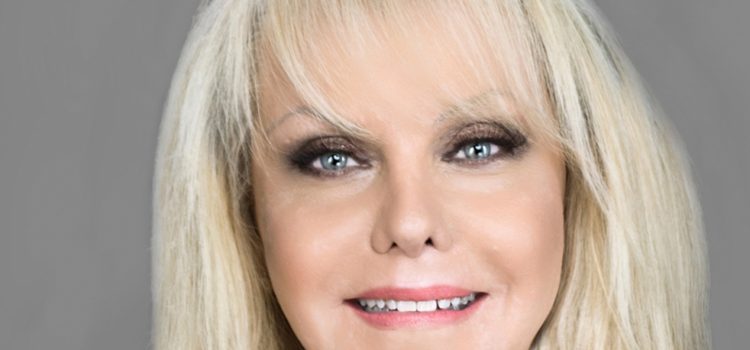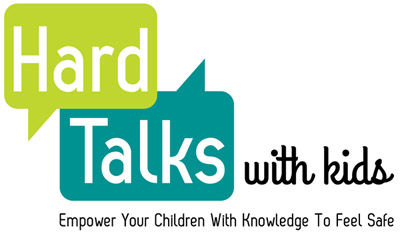

Tips on Identifying if your Child is a Bully, is Getting Bullied and Staying Safe Online – Ross Ellis
hard talks October 30, 2016 admin 0

Subscribe to Hard Talks With Kids
Ross Ellis is a national bullying and cyberbullying prevention expert. HardTalksWithKids.com is grateful she agreed to participate in a Q&A with us. I hope you all find this information helpful. If you need additional resources on bullying, please find her website which is listed in her bio at the end of the article.- Estée Pouleris
Estée: What age range does bullying start?
Ross Ellis: Aggressive behaviors can begin when the terrible twos start. That is not considered bullying. Most kids outgrow these behaviors by the time they enter grade school, because they’ve developed the language skills to express themselves and have been socialized to feel that physical aggression is wrong.
If your child has failed to learn these skills, it’s time to find out why.
Estée: What is the difference between ‘picking on’ someone versus ‘bullying’?
Ross Ellis: Kids can pick on another in a positive way to provoke a reaction. Picking on and teasing on another can strengthen a relationship by showing closeness and affection.
This should not be confused with bullying where the teasing becomes hostile and hurtful. Bullying is a repetitive and cruel behavior. It’s an Imbalance of Power: Kids who bully use their power—physically, emotionally, verbally, racially, and sexually and digitally to embarrass and to control and harm others.
Estée: If my child comes home from school and identifies a group of friends who are picking on her, what are the appropriate questions I should ask her and next steps I can take with the school?
Ross Ellis: First, let your child know that you love her and what’s happening is not her fault. Determine if she is actually being picked on or bullied. Ask exactly what’s happening and how long it’s been going on. Depending on the age of the child, if your child is younger than elementary school age, it’s usually typical aggressive playground behavior. Try having your child play with different kids on the playground.
Elementary school bullying is often blurred. The same child can be the victim of bullying one day and can display bullying behaviors the next day. A child may be socially excluded by one person/group but engage in name-calling with another person/group.
Teasing is playful, good-natured and goes back and forth. Bullying is one-sided. Teasing stops when the child tells the other person they do not like it. Bullying continues even after the victim asks for it to stop.
Middle school and high school bullying presents bigger issues. As long as the bullying is not physical, it’s important to empower your child. Comebacks are great and they work!
If someone calls your child a name, your child should look at the bully in the eyes and give a comeback like “Whatever” or ask “Does that make you feel better?” and then walk away without any conversation. Your child has just become empowered and taken away the bully’s power.
If kids show the bully they are afraid, some kids can become victims, anywhere and everywhere. That is why it is so important to empower your kids.
If the bullying is physical, your child should not fight back unless they can’t get away. If that happens, your child should fight until they can get away and then run and get the help of an adult.
Estée: What are some signs my child is getting bullied if he/she doesn’t tell me?
Ross Ellis: Warning signs your child is being bullied:
- Your child comes home with torn, damaged, or missing pieces of clothing, books, or other belongings
- Has unexplained cuts, bruises, and scratches
- Has few, if any friends, with whom he or she spends time
- Seems afraid of going to school, walking to and from school, riding the school bus, or taking part in organized activities with peers
- Finds or makes up excuses as to why they can’t go to school
- Takes a long out of the way route when walking to or from school
- Has lost interest in school work or suddenly begins to do poorly in school
- Appears sad, moody, teary, or depressed when he or she comes home
- Complains frequently of headaches, stomachaches or other physical ailments
- Has trouble sleeping or has frequent bad dreams
- Experiences a loss of appetite
- Appears anxious and suffers from low self-esteem
Note: Children with disabilities may be at a higher risk of being bullied than other children.
Estée: What can you do if you suspect your child is a victim of bullying?
Ross Ellis: The above signs are signs of bullying but are also signs of other abuse as well. If your child displays any of these signs talk with them and talk with the school staff to learn more about what’s going on.
When talking with your child, don’t just ask if they’re being bullied.
A better way to approach it is to say:
- “I’ve heard a lot about bullying in the news. Is that going on at your school?”
- “I’m worried about you. Are there any kids at school who may be picking on you or bullying you?”
- “Are there any kids at school who tease you in a mean way?”
- “Are there any kids at school who leave you out or exclude you on purpose?”
Some subtle questions:
- “Do you have any special friends at school this year? Who are they? Who do you hang out with?”
- “Who do you sit with at lunch and on the bus?”
- “Are there any kids at school who you really don’t like? Why don’t you like them? Do they ever pick on you or leave you out of things?”
If your kids or teens are being bullied do not over-react. Assure them that you love them that this is not your fault and you will help them. Let them know they can talk to you about anything.
Talk with your kid’s/teen’s school. Call or set up an appointment to talk with their teacher. Teachers are likely in the best position to understand the relationships between your child and other peers in their school.
Share your concerns about your child and ask the teacher such questions as:
- “How does my child get along with other students in his or her class?”
- “With whom does he or she spend free time?”
- “Have you noticed or have you ever suspected that my child is being bullied by other students?” Offer some examples of some ways that kids and teens are bullied so the teacher fully understands that you’re not focused on one form of bullying
- Ask the teacher to talk with other faculty and staff who interact with your child at school to see whether they have observed your child being bullied by his or her peers
- If you are not comfortable talking with your child’s teacher, or not satisfied with the conversation, make an appointment to meet with your child’s guidance counselor or principal to discuss these concerns
- If you believe your child is being bullied take quick action as bullying can have serious effects on kids and teens
If, after talking with your child and his or her school and you don’t feel that your child is being bullied, stay alert to other possible problems that your child may be experiencing serious problems that could cause depression, social isolation, and loss of interest in school and share your concerns with a school counselor or psychologist.
Estée: If my child has been identified as a bully, what are the next steps I should take as a parent?
Ross Ellis: Let your child know that you are aware of his/her behavior and it’s wrong. Tell them how much you love them and you will work with him/her to change their behavior. Let your child know there will be consequences. Seek the help of a child psychologist to get to the root of your child’s behavior and change it.
Estée: What are your suggested online safety rules for computer usage in the bedroom, monitoring children’s online profiles, having their passwords etc?
Ross Ellis: Kids under 13 should not be on social media sites like Facebook, Instagram, Twitter, etc. It doesn’t matter if their friends are on these sites. The legal age for all of these sites is 13 for a reason.
Once your kids reach the age of 13 and you as the parent are completely tech savvy, you should have their username sand passwords. Of course can likely set up a different account you don’t know about so place a “Google Alert” on your child’s name which will come into your inbox with anything that has your kid’s name online.
Teens check their social media accounts a minimum of 100 times a day to see what is being said about them. Be sure to tell them that if there is a negative post about them, NEVER to respond, and to delete the post and block the person. Additionally educate your kids about not posting anything nasty about others. If they wouldn’t say It in person, they shouldn’t post it.
It’s imperative that parents raise digitally responsible citizens!
Ross Ellis is a national bullying and cyberbullying prevention expert, as well as an expert on violence against children and child abuse prevention. She focuses on bullying and cyberbullying prevention, school violence prevention, Internet safety, positive parenting and an array of parenting issues. As the Founder and Chief Executive Officer of STOMP Out Bullying, the most influential anti-bullying organization for kids and teens in the U.S. and beyond, and Love our Children USA, the national ‘go-to’ prevention organization fighting all forms of violence and neglect against children. Ross works aggressively to educate kids, teens and parents on the issues that most affect them. She is a national speaker in these areas and has appeared on CNN Headline News, Nightline, Fox News, MSNBC, HLN, Good Day New York, The Early Show, LXTV, The Montel Williams Show, WABC-TV Eyewitness News, Fox 5 NY, 106.7 Lite FM, Z100, Q104.3 and many other TV and radio shows. She is a contributor the Huffington Post, and the National Parenting Examiner and the New York Real Estate Examiner at Examiner.com, as well as STOMP Out Bullying and Love Our Children USA blogs, and writes her personal real estate blogs on ActiveRain.com and RossEllisSellsNewYork.com. Ross is also an award-winning Real Estate Broker in Manhattan. She has been featured in the New York Post, CBS Money Watch, Brokers Weekly, International Homes Magazine, Overseas Property Professional and Real Estate Weekly.
STOMP Out Bullying™ is the leading national anti-bullying and cyberbullying organization for kids and teens in the U.S. Created in 2005, STOMP Out Bullying™ focuses on reducing and preventing bullying, cyberbullying, sexting and other digital abuse, educating against homophobia, racism and hatred, decreasing school absenteeism, and deterring violence in schools, online and in communities across the country. STOMP Out Bullying™ is recognized as the most influential anti-bullying organization in America.
Receive updates from Hard Talks With Kids
admin
Hard Talks With Kids is managed by Estée Pouleris. All articles are written by childhood development experts and doctors. If you'd like to connect with a particular contributor, please find their website within the article they wrote for Hard Talks With Kids. Thank you for visiting our site!

No comments so far.
Be first to leave comment below.